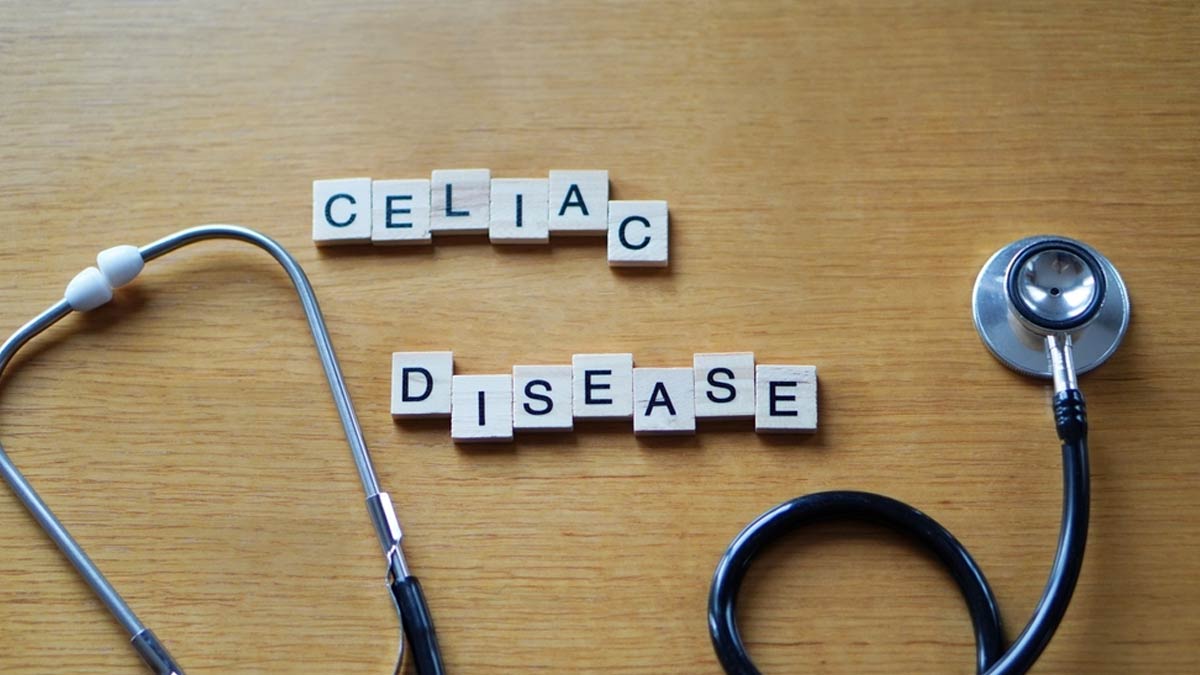
For many people, the challenges of celiac disease go beyond digestive discomfort. When left untreated, this autoimmune disorder can quietly disrupt other aspects of health, including fertility. Both men and women may experience complications that can make conceiving difficult or maintaining a healthy pregnancy more challenging. The good news is that understanding the link between celiac disease and reproductive health can lead to positive outcomes, especially with early diagnosis and the right dietary changes. We spoke to our expert Dr Prof Bharathi Rajanna MBBS, MD(OBG), FMAS, DMAS, Fertility Specialist, Overseas Consultant Obstetrics and Gynaecology, Apollo Cradle and Children’s Hospital, Bangalore, who explained how celiac disease affects fertility and the role a gluten-free diet plays in improving chances of conception.
Table of Content:-
According to StatPearls, celiac disease, or gluten-sensitive enteropathy, is an autoimmune disorder that affects the small intestine. In this condition, the body mistakenly triggers an immune response to gluten, leading to inflammation and damage in the small intestine.
Prevalence Of Celiac Disease

“The prevalence of coeliac disease in the world is estimated to be 1%. It varies widely depending on the ethnicity. The disease is recognised in Europe, Asia, North Africa, the Middle East and South America. A large population of affected people remain undiagnosed. A family history of coeliac disease also influences the prevalence of the disease. First-degree relatives have a prevalence of 1:10 and second-degree relatives 1:39,” said Dr Ranjanna.
Causes Of Celiac Disease

"Celiac disease is caused by the interaction of gluten, immune, genetic, and environmental factors. Gluten refers to the entire protein component of wheat, specifically Gliadin, which is a toxic component responsible for the stickiness in wheat. When undigested, it interacts with antigen-presenting cells in the upper part of the small intestine, leading to chronic inflammation and villous atrophy," added Dr Ranjanna.
Environmental factors, such as breastfeeding and delivery by LSCS (a surgical procedure for delivering a baby through an incision in the lower segment of the uterus), are thought to play a role in the increased incidence of celiac disease. Breastfeeding may have a negative effect on celiac disease, as it can alter the intestinal flora of the neonate, impairing the establishment of host-microbe homeostasis and intestinal mucosal integrity.
Also Read: Is It Possible To Develop Gluten Intolerance Later In Life? Expert Discusses Causes And Solutions
Symptoms Of Celiac Disease

- Celiac disease can affect individuals of all ages and can lead to symptoms, such as diarrhoea and steatorrhea.
- Other non-clinical manifestations may include anaemia, metabolic bone disease, osteopenia, small bowel adenocarcinoma, oesophageal carcinoma, and non-Hodgkin’s lymphoma. Reproductive abnormalities can also occur, such as late menstrual periods, premature menopause, secondary amenorrhea, recurrent miscarriage, and unexplained infertility.
- Celiac disease can reduce the ability of the reproductive organs to absorb essential nutrients like iron, calcium, folate, and vitamin D, which are crucial for reproduction.
The gold standard for definitive diagnosis of celiac disease is positive serology for IgA anti-tissue transglutaminase (tTG) and IgA endomysial antibodies in the duodenal plan. Untreated celiac disease can lead to fertility issues in both men and women, highlighting the importance of understanding the connection between celiac disease and reproductive challenges.
Understanding the Connection Between Fertility and Celiac Disease

"Hormonal changes, lifestyle factors, and medical conditions can affect fertility. For a female, undiagnosed or inadequately treated celiac disease may affect the endocrine system in directing hormones that alter menstrual cycles leading to fertility problems like irregular periods, early menopause or amenorrhea," added Dr Ranjanna.
The impaired absorption of essential nutrients, such as folic acid, iron, calcium, and Vitamin D due to inflammation of the intestines can cause malnutrition which affects fertility and the ability to maintain a pregnancy. "Untreated celiac disease also increases the risk of recurrent miscarriage because the chronic inflammation may hinder implantation and fertilised egg development. Moreover, if celiac disease is not treated, there are risks associated with pregnancy including low birth weight, preterm delivery, and preeclampsia," she expalined.
Celiac disease can also significantly affect male fertility by reducing sperm quality, motility, and concentration, and causing hormonal imbalances like low testosterone levels, which impact sperm production and libido. Nutritional deficiencies, particularly in zinc and selenium due to malabsorption, further compromise sperm production and overall reproductive health.
The Impact of a Gluten-Free Diet on Fertility
The best way to manage celiac disease is to avoid foods that contain gluten, which makes the lining of the small intestine heal and enables the body to absorb nutrients.

- Hormonal Regulation: In many cases, a gluten-free diet serves to fix hormonal disorders and restore normal menstrual cycle in women, and normal testosterone levels in men.
- Improved Nutrient Absorption: A gluten-free diet restores the small intestine, which helps the body take necessary nutrients for fertility, such as folic acid, iron and calcium.
- Lower Miscarriage Risk: There is a reduced risk of miscarriage among women with celiac disease who adhere to a gluten-free diet compared to those with untreated celiac disease.
Diagnosis And Treatment
Symptoms of celiac disease include fatigue and mild gastrointestinal discomfort. Since celiac disease is an autoimmune disorder, prevention is not possible, but certain steps can help mitigate its effects or aid in early detection.
Doctors may recommend customised treatment plans based on the severity of the situation and the individual’s health condition. Celiac disease symptoms may go unnoticed for months, but when women experience continued miscarriage or infertility issues, they are advised to undergo screening for celiac disease. Early diagnosis helps plan and maintain a gluten-free diet, which can improve fertility and overall well-being.
Bottomline
Dr Rajanna concluded, "Women who plan to conceive and are affected by celiac disease, have to maintain their nutrient level in the body. Based on the doctor’s recommendation, women can rely on vitamin and mineral supplements like Vitamin B12, Vitamin D, and Folic acid for nutrition deficiency. Along with a gluten-free diet and hydration, there will be a significant reduction in inflammation. Women should include antioxidant-rich foods, such as leafy green vegetables, fruits, lean proteins, and whole grains like quinoa, brown rice, and gluten-free oats in their diet. These foods provide essential nutrients and improve overall well-being."
[Disclaimer: This article contains information provided by an expert and is for informational purposes only. Hence, we advise you to consult your own professional if you are dealing with any health issues to avoid complications.]
Also watch this video
How we keep this article up to date:
We work with experts and keep a close eye on the latest in health and wellness. Whenever there is a new research or helpful information, we update our articles with accurate and useful advice.
Current Version
